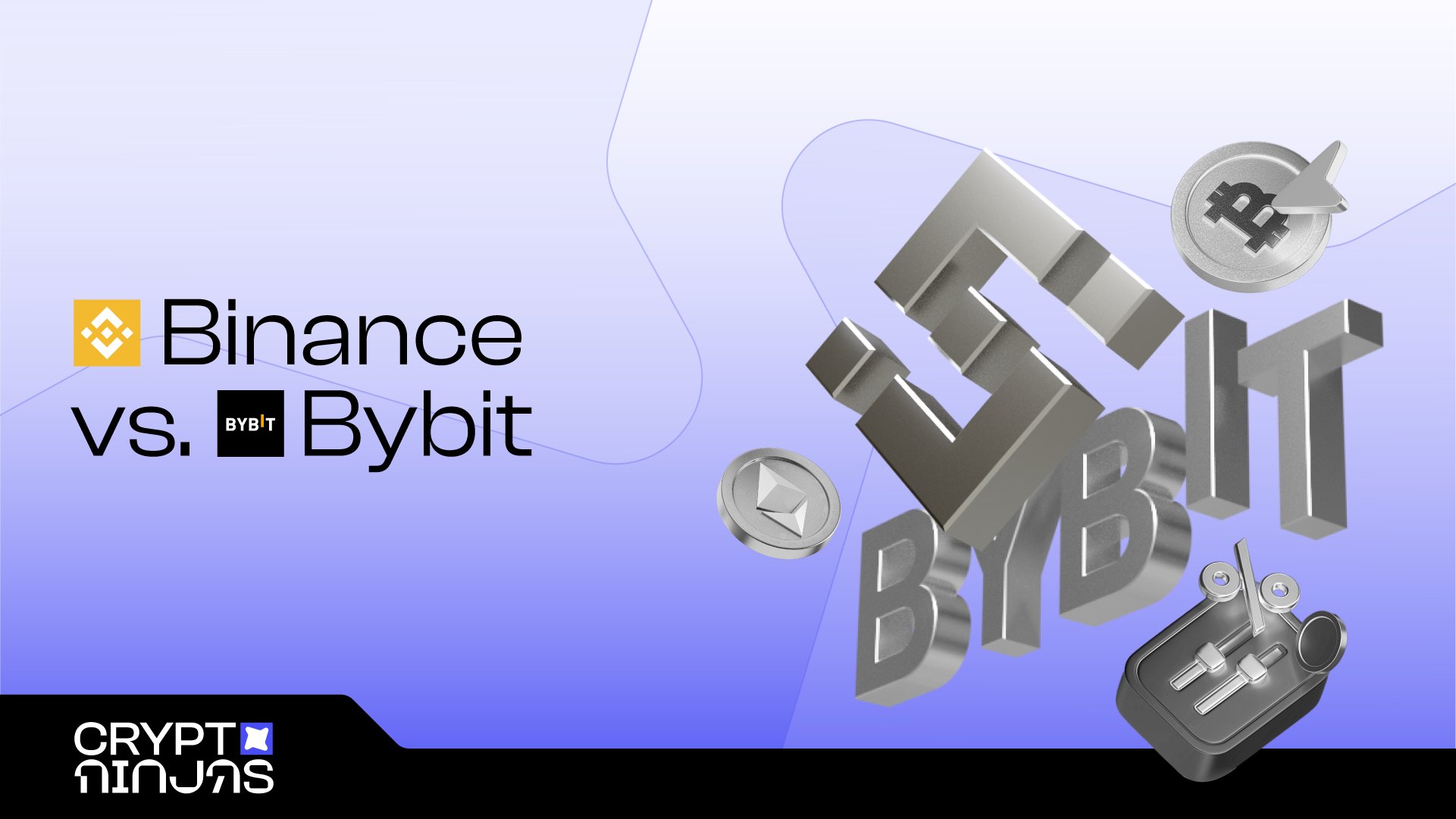Cryptoninjas
3w
61

Image Credit: Cryptoninjas
Binance vs. Bybit Comparison (2025): Fees, Features, and Security
- Binance and Bybit are crypto exchanges offering features like instant buy/sell crypto, leverage trading, and staking services, each catering to different trader segments.
- Binance is ideal for high-volume traders with a daily trading volume of around $50 billion and supports over 400 cryptocurrencies with a leverage of 125x.
- Bybit focuses on derivatives trading, offering a maximum leverage of 100x, supporting over 1,600 cryptocurrencies, and providing advanced tools for futures and options markets.
- Key Binance features include spot trading, futures, options, staking, NTFs, margin trading, and the SAFU fund, while Bybit offers spot trading, advanced derivatives, trading bots, staking, and no-KYC withdrawals.
- Comparing Binance and Bybit based on features, trading fees, security, and regulatory levels can help users choose the suitable exchange for their needs.
- Binance boasts a higher trading volume, supports more coins, and enforces mandatory KYC, while Bybit offers flexibility with optional KYC and supports a larger number of cryptocurrencies.
- Both exchanges charge 0.1% for maker/taker spot fees, have variable futures fees, and offer zero deposit fees with variable withdrawal fees.
- Bybit's fees vary based on trading volume, and Binance offers fee discounts when using its native token, BNB.
- Deposit fees are minimal on both platforms, with Bybit not charging for crypto deposits and Binance offering free bank deposits for fiat currencies in most cases.
- Security measures on both exchanges include anti-phishing codes, withdrawal address whitelisting, Proof of Reserves (PoR) information, 2FA, and cold storage.
- Binance's SAFU fund provides additional security, while Bybit faced a $1.4 billion hack in 2025, lacking a similar protection fund.
Read Full Article
3 Likes
For uninterrupted reading, download the app